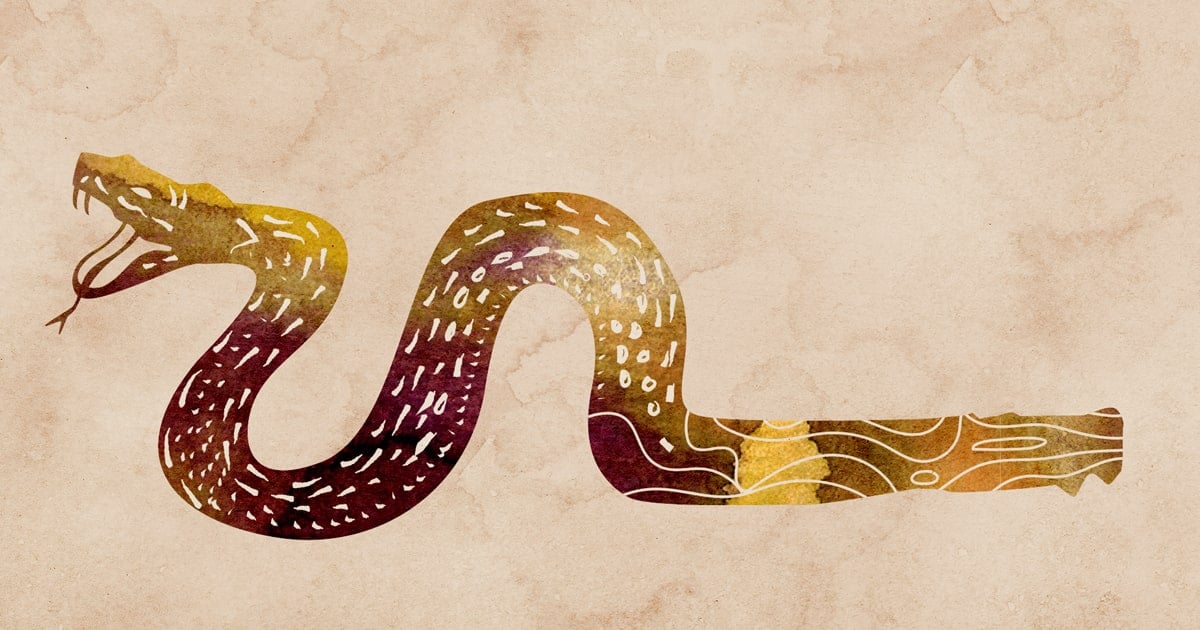If Your Life Was Perfect What Would You Daven For?

There was one morning, a while back that I had the opportunity to daven with a group of middle school students. (City and school undisclosed – but it could've been anywhere.)
The kids were rambunctious, finding it difficult to maintain their composure throughout the Tefillah. This is not uncommon for boys that age. At one point, as the noise level was getting out of hand, a rebbe approached the front of the room and motioned for silence and attention. When the room finally quieted down, he began:
“I understand that many of you don't feel like there is anything for you to daven for today. You are healthy and well, your lives are happy and successful. Hashem has taken care of your daily needs. You are well fed, your homes are safe. But please, even if you have no need to daven for yourself, think of someone who needs your tefillos. Is there someone you know who is ill? Someone that needs help on a test? Or making friends? Even if you have nothing to ask from Hashem, ask Him to help your friends.”
The feeling in the room changed, and the rebbe returned to his seat.
I don't know if his message made much of an impression on the kids that morning, but they were certainly a little quieter for the remainder of Shachris. (Though I have no way of knowing if they actually began to daven for themselves or others.)
I've thought a lot about the message that the rebbe shared that morning. On the one hand, it's important and beautiful. We believe in the power of Tefillah to help others. But on the other hand, there was something deeply unsettling in his argument, something profoundly flawed in the underpinnings of his instructions.
What if Life was Perfect?
Take a moment and imagine your life if you were currently living as Jew in the Midbar. Every morning, you wake up to a breakfast of Manna delivered miraculously from Shamayim. Your water comes from a rock. Ananei HaKavod surround your home, protecting you from the heat of the sun and the coldness of night. The requirements of your physical existence are all completely taken care of by Hashem Himself.
There are no Yeshiva admissions, no tuition bills. Your children are taught by Moshe Rabbeinu and Aharon HaKohen, and you feel Hashem's presence in your life in a tangible way; He's holding your hand, guiding you from camp to camp; from station to station.
Throughout the forty years in the desert, there was quite literally, nothing that anyone needed to do. With one exception: Building the Mishkan.
The Mishkan was constructed with Jewish hands, Jewish labor and Jewish money. Every part of it painstakingly crafted and assembled according to the specifications that Hashem commanded. This project spans four entire Parshiyos in the Torah.
The Sefer HaChinuch (צ״ה) explains that this entire endeavor was not, because Hashem needs a physical home – He fills all worlds at all times completely. The purpose of constructing the Mishkan is to create a space that serves our interests:
כי בנין בית לשם יתברך לעשותנו בה תפלות וקרבנות אליו, הכל להכין הלבבות לעבודתו יתעלה.
The building of a Home for Hashem, for us to pray and offer sacrifices to Him in it – it is all to prepare our hearts to His service.
But why on earth would we build a Mishkan in which to daven if all of our needs are taken care of already?
The message of the Torah is quite clear: Through the process of donating to, building and frequenting the Mishkan, our lives and perspectives would change. We don't daven because we need something. We daven because we want to speak to Hashem. We want to realign our value system to the values of Hashem.
Rebbe Nachman (ליקוטי מוהר”ן קמא ע׳:ב׳) explains the purpose of the Mishkan:
כִּי מִשְׁכָּן הָיָה לוֹ כֹּחַ הַמּוֹשֵׁךְ, לְהַמְשִׁיךְ אֱלֹקוּת לַמָּקוֹם שֶׁהָיָה עוֹמֵד שָׁם, בְּחִינַת (שיר השירים א׳:ד׳): מָשְׁכֵנִי אַחֲרֶיךָ נָּרוּצָה.
The Mishkan (מִשְׁכָּן) had an attracting force (מּוֹשֵׁךְ) for drawing Godliness to the site in which it stood, as in “Draw Me; we will run after You”.
The obligation to build a Mishkan serves to teach us that the Ribono Shel Olam is not, Chas V'Shalom, a celestial Jewish Santa Claus. We do not wait on a long line to ask for the things we want in life, nervously anticipating His determination as to whether we have been good enough to receive it. Hashem is also not a bureaucrat insisting that the paperwork of our requests is filled out correctly.
Instead, we create a space, a place and a time to cultivate our relationship. This doesn't only begin when life gets tough, it permeates our lives every moment of every day.
Making Space
Even in the absence of a Mishkan and Beis Hamikdash, we are still obligated and invited to make space for Hashem. The Izhbiter writes (מי השלוח חלק ב, תרומה):
ויקחו לי תרומה שצוה הש”י שכל אחד יפריש לעצמו שעה מובדלת לה' בכל יום ולהתבודד בעבודת הש”י.
“And you will take for a me a Terumah” means that Hashem is commanding each and every Jew to separate for themselves an hour every day, dedicated to to being alone with Hashem.
The purpose of our grand national Mishkan building project was to make Yiddishkeit more meaningful, and less transactional. The only way to do it is by carving out time and attention to nurture our relationship with Hashem.
Likewise, we are also charged with designating space to do so. Chazal tell us that we are obligated to find a מקום קבוע – a set place in which to Daven.
Of course, this goal is not accomplished exclusively by Tefillah. The Alter Rebbe writes in Tanya (פרק ל״ד):
וּמִשֶּׁחָרַב בֵּית הַמִּקְדָּשׁ – אֵין לְהַקָּדוֹשׁ־בָּרוּךְ־הוּא בְּעוֹלָמוֹ מִשְׁכָּן וּמָכוֹן לְשִׁבְתּוֹ, הוּא יִחוּדוֹ יִתְבָּרֵךְ, אֶלָּא אַרְבַּע אַמּוֹת שֶׁל הֲלָכָה... אֵי לָזֹאת, אֶעֱשֶׂה לוֹ מִשְׁכָּן וּמָכוֹן לְשִׁבְתּוֹ, הוּא הָעֵסֶק בְּתַלְמוּד תּוֹרָה כְּפִי הַפְּנַאי שֶׁלִּי, בִּקְבִיעוּת עִתִּים בַּיּוֹם וּבַלַּיְלָה
Ever since the Temple was destroyed, “the four cubits of the Halachah”, the study of Jewish law — is the only sanctuary and abode which Hashem has in His world... (A person should therefore think) “This being so, I will make Him a sanctuary and an abode by studying Torah at fixed times by day and by night, to the extent of my free time.”
Therein lies the key: בִּקְבִיעוּת עִתִּים בַּיּוֹם וּבַלַּיְלָה – creating fixed times of the day and night. Fixed times, and fixed places.
Hashem, in His infinite wisdom, knows that most of us do the things that are urgent long before the things that are important. Without making a time and space, we drift from day to day, never getting to the activities and relationships that make life meaningful.
To avoid this pitfall, Hashem asks us to preempt it by putting in the big rocks first as Stephen Covey explained.
Of course, we should certainly still daven for things that are urgent. We should learn Torah when we need to know the Halacha. But all of that is in addition to the constant endeavor to live our lives in the presence of Hashem.
Parshas Terumah charges us to begin constructing our own sacred spaces and times. Making the important, important. With Hashem's help, we too will merit to fulfill the the famous words of Rav Hutner:
בלבבי משכן אבנה – In my heart I will build a Mishkan...








